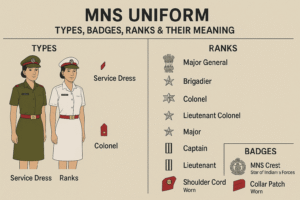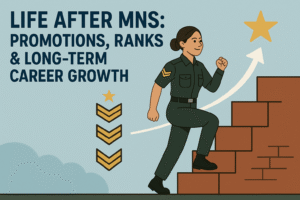Smart Strategy for Balancing Board Exams and CLAT Preparation
Preparing for CLAT while simultaneously managing board exams can be a daunting challenge for most Class 12 students. However, with the right strategy, discipline, and time management, you can ace both. This comprehensive guide provides actionable tips and a clear roadmap to help you balance your CLAT preparation with your board exam studies.
WHY IS IT CHALLENGING TO PREPARE FOR CLAT ALONG WITH BOARDS?
CLAT (Common Law Admission Test) tests aptitude-based skills like logical reasoning, current affairs, legal reasoning, and reading comprehension. In contrast, board exams are content-heavy and subject-specific. The difference in preparation style and syllabus often overwhelms students.
However, these two can be managed together with the right mindset and techniques.
EFFECTIVE STRATEGIES TO PREPARE FOR CLAT WHILE STUDYING FOR BOARDS
1. START EARLY – CLASS 11 IS IDEAL
If you start CLAT preparation in Class 11, you’ll have ample time to build a foundation before the board pressure begins. This gives you a strong edge and reduces stress in Class 12.
2. MAKE A DUAL STUDY PLAN
Create a timetable that includes both board subjects and CLAT sections.
Sample Daily Schedule:
Morning (6:30 AM – 8:30 AM): Board subject (Physics/Maths/Economics)
School Time (9:00 AM – 3:00 PM): Focus on board curriculum
Afternoon (4:00 PM – 6:00 PM): CLAT preparation (Reading, GK, Legal)
Evening (7:00 PM – 9:00 PM): Board revision + mock tests
Stick to the plan but be flexible during exam periods.
3. LEVERAGE OVERLAP BETWEEN CLAT AND BOARDS
Some subjects like English and Current Affairs help in both:
English: Board English improves comprehension, vocabulary, and grammar for CLAT.
Economics/Political Science: Offers good background for Current Affairs and Legal Reasoning.
General Awareness: Use the same notes for both board-related essays and CLAT GK.
4. STAY CONSISTENT WITH READING
Reading newspapers and editorials daily boosts comprehension, vocabulary, and current affairs awareness.
Recommended:
The Hindu, Indian Express
Editorials and legal news
Online CLAT current affairs capsules (monthly)
5. USE WEEKENDS AND HOLIDAYS SMARTLY
Utilize weekends for CLAT mock tests, reading legal topics, and revision.
1 full-length mock every Sunday
Analyze your mock results thoroughly
Revise current affairs from the week
6. FOCUS ON CLAT SECTIONS THAT DON’T CLASH WITH BOARDS
CLAT includes:
English Language
Current Affairs including General Knowledge
Legal Reasoning
Logical Reasoning
Quantitative Techniques
You can reserve tougher sections (like Logical and Legal Reasoning) for weekends or holidays.
7. USE ONLINE TOOLS AND COURSES
If you’re not attending coaching, opt for online platforms with flexible schedules.
Pre-recorded video lectures
Daily quizzes and weekly tests
Monthly current affairs PDFs
8. AVOID BURNOUT – BALANCE IS KEY
Overloading yourself can harm both your CLAT and board scores. Take breaks, sleep well, and don’t neglect physical health.
9. TAKE MOCK TESTS REGULARLY
Mock tests are essential for CLAT success. Start with one mock every two weeks and increase to 1–2 mocks per week by October.
Evaluate:
Accuracy
Speed
Time management
10. LAST 3 MONTHS STRATEGY
From January (after boards’ pre-boards), shift more focus towards CLAT.
CLAT usually happens in December (from 2024 onward)
Prioritize CLAT from August–December
Post-CLAT, give full focus to board practicals and revisions
MONTH-BY-MONTH PREPARATION PLAN
| Month | Focus |
|---|---|
| April – June | Basics of CLAT, light board revision |
| July – August | CLAT mocks begin, current affairs focus |
| Sept – Oct | Board preps + CLAT revision |
| November | Final board revisions + CLAT mocks |
| December | CLAT exam |
| Jan – Feb | Focus entirely on boards |
FINAL TIPS
Stay positive and self-motivated
Practice time-bound solving for CLAT
Discuss current affairs with friends or mentors
Don’t compare your prep with others – focus on your pace
SEO KEYWORDS TO INCLUDE
CLAT and board exam preparation, how to prepare for CLAT in class 12, CLAT strategy for board students, CLAT 2025 preparation tips, CLAT with boards, CLAT preparation for CBSE students
FREQUENTLY ASKED QUESTIONS (FAQs)
Q1. Is it possible to crack CLAT while preparing for board exams?
Yes. Many toppers manage both by following a balanced schedule and starting early.
Q2. When should I start preparing for CLAT if I’m in Class 12?
Start as early as possible. Ideally by April or May of Class 12.
Q3. How many hours should I dedicate to CLAT daily while managing boards?
2–3 hours a day is sufficient during school time. Increase during holidays and weekends.
Q4. Should I join CLAT coaching while preparing for boards?
It depends. If you’re disciplined and good at self-study, online resources and mock tests may suffice. Otherwise, a weekend or online coaching program helps.
Q5. Can board subjects help in CLAT preparation?
Yes. English, Political Science, and Economics overlap with CLAT sections like comprehension and current affairs.
CONCLUSION
Balancing CLAT and board exams is tough but doable. With a strategic timetable, consistent effort, and a positive attitude, you can secure a top law college seat and score well in boards. Start now, stay focused, and believe in your journey.






